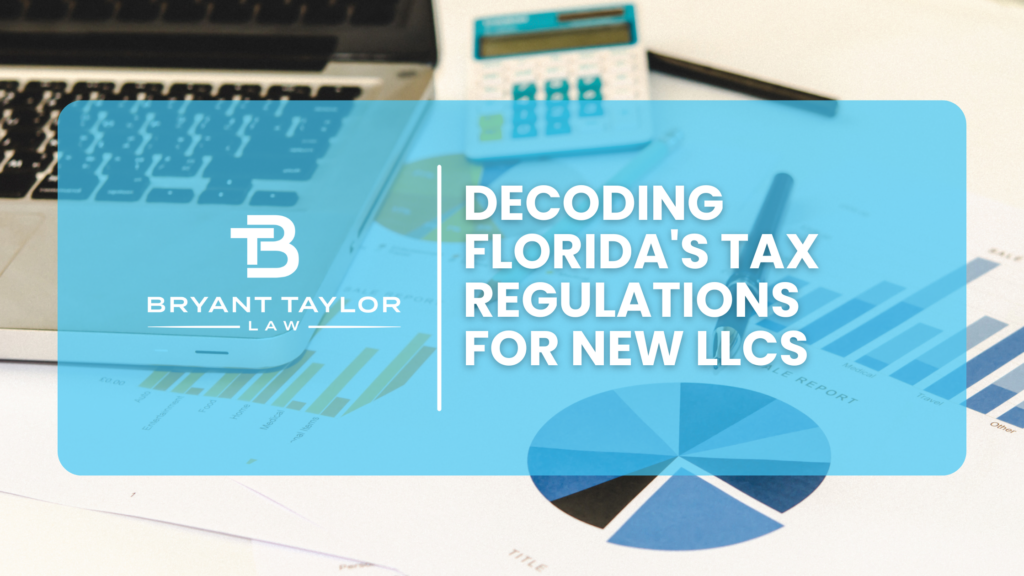
Florida is known for its transparent business environment, particularly regarding Limited Liability Companies (LLCs). We have over 2.7 million small businesses, contributing 42.2% of the state’s workforce. Many of these small businesses opt for the LLC structure. Owners appreciate the fluidity and protective nature that the entity provides. Yet, while the business landscape in Florida may appear straightforward, the subtleties of tax regulations for LLCs may be complex for many new business owners. Let’s delve into the key aspects of Florida’s tax regulations for new LLCs.
Tax Obligations and Advantages for Florida LLCs
With its favorable tax environment, Florida notably does not impose a state income tax on LLCs. This strategically positions the business to optimize profits without the added burden of state-level income tax. However, this does not exempt them from all tax obligations. Depending on their elected tax structure, whether as a pass-through entity or a corporation, an LLC is beholden to distinct federal and potentially other state and local tax responsibilities. Navigating through self-employment taxes, estimated taxes, sales tax, property tax, and unemployment tax necessitates a keen understanding and strategic planning to ensure compliance.
Florida provides several tax advantages to LLCs in an environment where financial maneuvering can directly impact profitability. The absence of state income tax is an unequivocal benefit, but additional advantages are seen when LLCs choose a pass-through tax structure. This allows profits and losses to be relayed directly to the members of the LLC. This is a significant tax advantage, mainly when losses can be offset against personal income. Moreover, avoiding the pitfall of double taxation—a scenario where both the corporation and the shareholders are taxed—can be avoided by electing the pass-through tax structure, thereby only taxing profits at the member level.
Management and Additional Tips for Navigating through Florida LLCs
Management of LLCs is fundamentally member-driven. Whether the members manage the LLC directly or elect a manager to oversee the day-to-day operations, the decision-making power regarding the LLC’s direction resides with them. This applies to financial management and product or service offerings. Ensuring an LLC operates optimally and adheres to all regulatory and tax obligations under Florida state law requires planning and oversight. A well-drafted operating agreement, accurate financial records, adhering to filing and regulatory compliance, and separating personal and business finances are instrumental to safeguarding the LLC.
There are several opportunities to consider when establishing and operating an LLC in Florida. Never lose sight of the state’s favorable tax environment and flexible management structure. However, it is equally important to understand how to manage and run an LLC appropriately.
Bryant Taylor Law
When your business faces Florida’s regulatory and tax environment, having an experienced professional to support you can provide invaluable insights and avoid potential pitfalls. The Bryant Taylor Law team understands the unique complexities of businesses, particularly in the real estate sector. Our approach revolves around creating flexible compensation plans, being extraordinarily responsive to our clients, aiding business success, and mitigating issues before they escalate. Work toward sustainable business growth and navigate Florida’s regulatory challenges by scheduling a business strategy session with us.
Bryant Taylor
Latest posts by Bryant Taylor (see all)
- Understanding Hard Money Lending for Real Estate Investments - April 18, 2024




